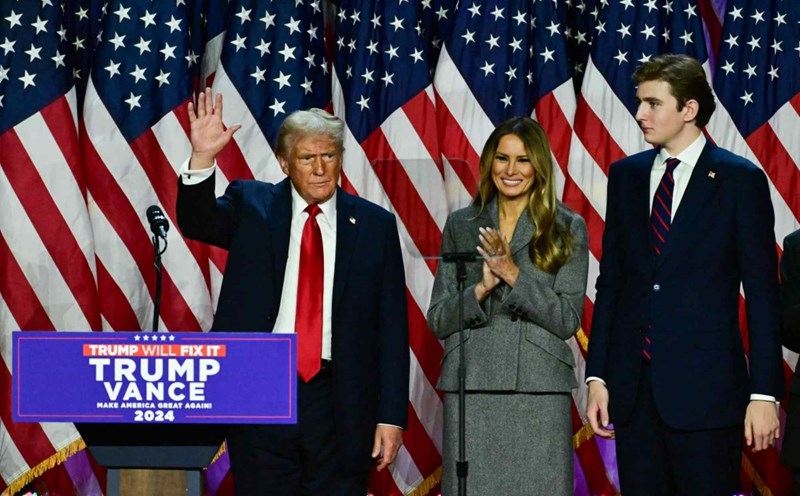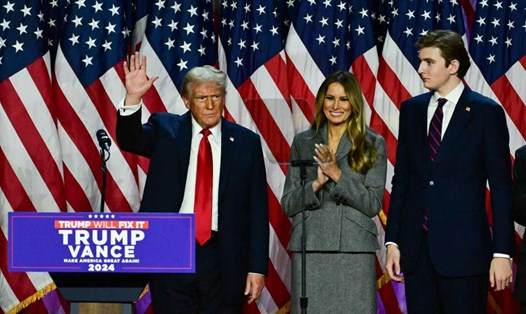Within the first 10 days after knowing for sure that he would return to the White House after the presidential election on November 5 in the United States, Mr. Trump basically selected personnel for key positions of power in his administration.
Trump’s personnel decisions are both understandable and surprising. Since his previous term as US President, Trump has been steadfast in his principle of only trusting his family members and those who are absolutely loyal to him. Therefore, those who have not accompanied Trump in the past 4 years have no chance of joining his new administration.
Besides the principle of "Loyalty first and foremost", Mr. Trump will of course also use the appointment to positions of power in the new administration to "repay and reward" those who have contributed their efforts, reputation and money to Mr. Trump's return to the White House.
The third principle that governs all of Mr. Trump's choices of associates for his upcoming second presidential term is to share the same views and ideologies with Mr. Trump on domestic and foreign affairs, politics and society, economics and trade.
Mr. Trump chose them to carry out what he intended, not to get their policy advice, and certainly not to hear their policy criticism and witness their opposition.
These principles make it no surprise to outsiders when Mr. Trump chooses this person or nominates that person.
But people were surprised that once the above three principles were promoted and elevated to the level of immutability, the expertise and experience of the associates appointed by Mr. Trump in the policy areas they will be in charge of will not be properly valued.
For example, both Mr. Marco Rubio as Secretary of State, Mr. Pete Hegseth as Secretary of Defense, Mr. Mike Waltz as National Security Advisor, and Ms. Elise Stefanik as US Ambassador to the United Nations are not famous in the US and the world in foreign affairs, security, defense, world politics and international relations. They have one thing in common: they all have a very tough stance on China, and this seems to be especially important to Mr. Trump.
Two people who defected from the Democratic Party to support Mr. Trump's presidential bid were also highly regarded by Mr. Trump in the new administration, despite doubts about their abilities in the fields they were responsible for, namely health care and intelligence.
The two people who spent the most money on Trump's campaign were also given the opportunity to participate in executive politics in the United States by Trump. The person who strongly opposed vaccination and preventive medicine was put in charge of the Department of Health. The person who firmly denied the existence of global climate change is now in charge of the Environmental Protection Agency. The person with a hardline stance on restricting refugees, migration and immigration to the United States was put in charge of border control. Two people who fervently support Israel and oppose the establishment of an independent Palestinian state were appointed as special envoy to the Middle East and US ambassador to Israel...
From these appointments and personnel arrangements of Mr. Trump, we can identify not only the principles governing Mr. Trump's personnel decisions but also his domestic and foreign policy orientations. They show that Mr. Trump has determined to implement immediately after officially taking office as President of the United States the campaign commitments that have the strongest domestic impact, building the image of a person who says what he does, commits to doing what he commits to in order to consolidate the support of the voters who elected him. How this team of associates will later demonstrate their capabilities is another matter and is currently only secondary.











